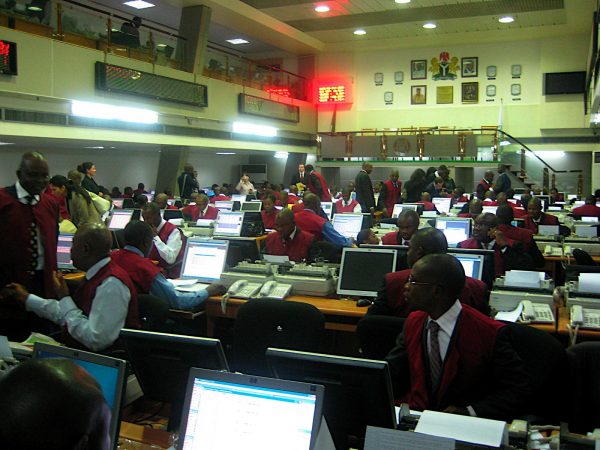Trading on the Nigerian Stock Exchange closed on a negative note Friday as the All Share Index dropped by 0.87 per cent to close at 27,028.39 points from 27,266.18 on Thursday while market capitalisation also dropped from N9.377 trillion to N9.296 trillion.
Okomu Oil led the gainer table of seven stocks with the highest gain of N3.25 gain or 9.85 per cent to N36.25 followed by Dangote Sugar with a gain of N0.28 or 4.86 per cent to close at N6.04 followed by Ikeja Hotel that gained N0.15 or 4.81 per cent to close at N3.27 per share.
On the other hand, Honywell Flour topped 29 stocks on the losers’ chart with N0.17 loss or 8.95 per cent to close at N1.73 followed by Unity Bank that lost 0.08 or 8.60 per cent to close at N0.85 per share, and Flour Mill that lost N1.04 or 5 per cent to close at N19.76 per share.
All together, a total of 235,554,505 shares worth N1.938 billion exchange hands in 2,953 deals.
Meanwhile, the Central Bank Nigeria (CBN) sold N136.24 billion in treasury bills with maturities from three months to one year at its first auction of the year on Wednesday, at higher yields than previously.
The central bank sold N55.4 billion of three-month paper at 4 percent, up from 3.62 per cent at a sale on December 23. It also sold N25 billion of six-month debt at 6.99 per cent against 6.19 percent, and N55.84 billion of one-year paper at 8.05 per cent compared with 7.45 per cent. Total demand stood at 311.5 billion naira compared with 226.97 billion last time.
Minister of Finance, Mrs. Kemi Adeosun, said the federal government would soon go to the debt market to raise fund in order to finance its capital expenditure.
Adeosun disclosed the need to borrow both from local and international sources while having a chat with Bloomberg recently. She said the decision was considered in light of the pressure confronting the economy as a result of plunging oil prices in the global crude market.
She said “We need to stimulate the economy because we cannot afford this downturn to be excessively prolonged.”
“We think we have the headroom to borrow. We’re going to mix it between local and foreign debt. We’re talking to multilateral agencies already and we’re at an advanced stage. Then we’ll look at the foreign capital markets.

